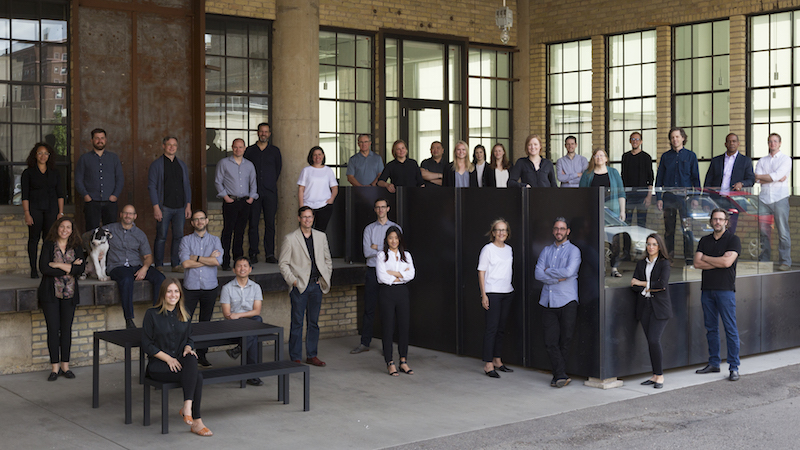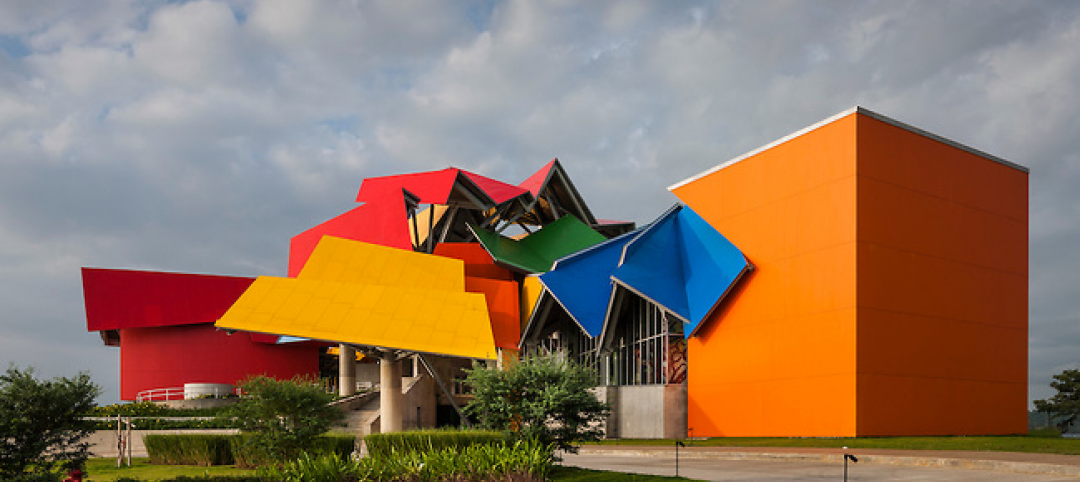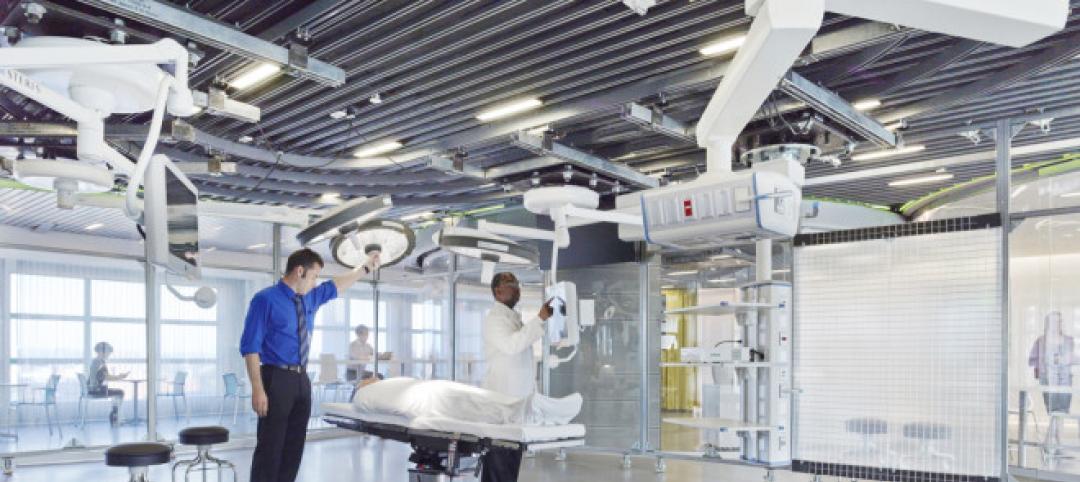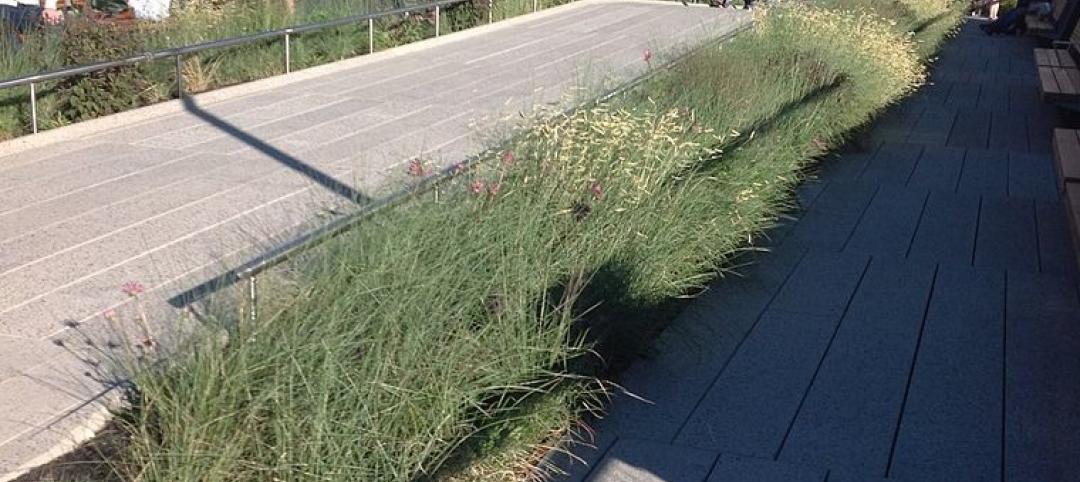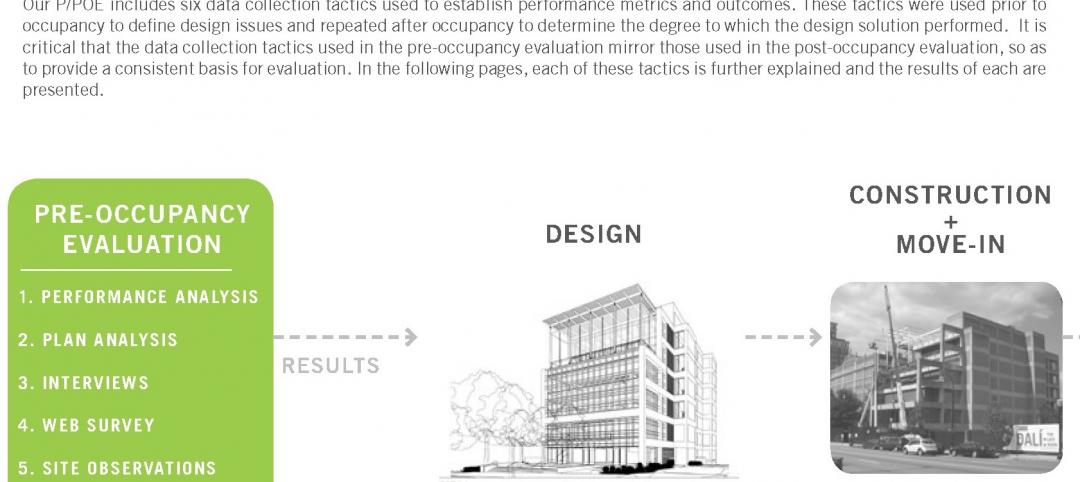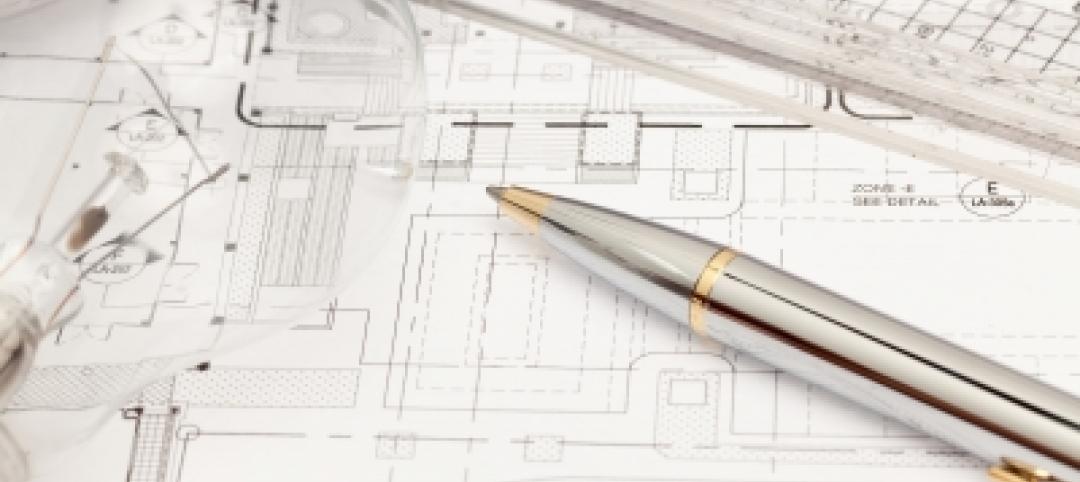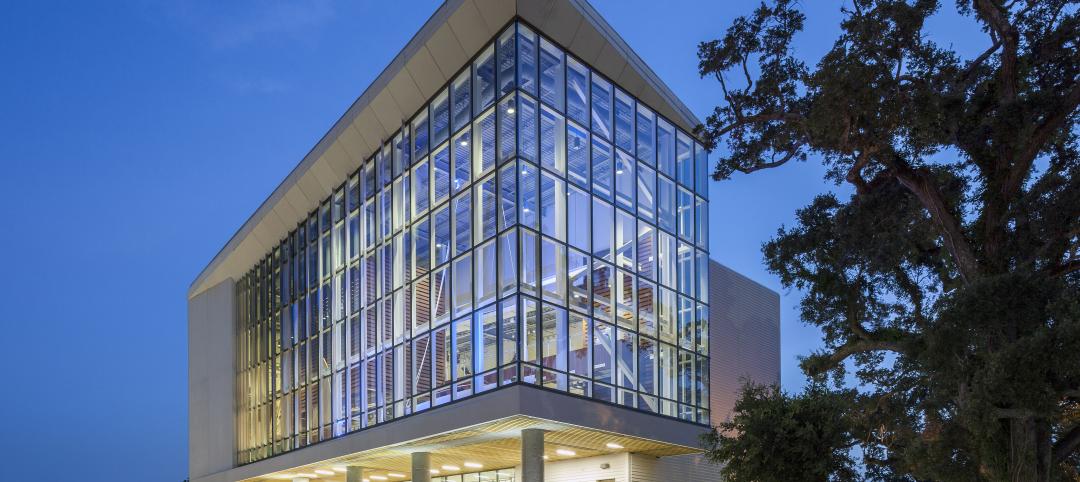The Board of Directors and the Strategic Council of the American Institute of Architects (AIA) voted for Snow Kreilich Architects to receive the 2018 AIA Architecture Firm Award. The AIA Architecture Firm Award, given annually, is the highest honor the AIA bestows on an architecture firm and recognizes a practice that consistently has produced distinguished architecture for at least 10 years. Snow Kreilich Architects will be honored at the AIA Conference on Architecture 2018 in New York City.
Julie Snow, FAIA, founded the firm in Minneapolis in 1995, and later was joined by partner Matt Kreilich, AIA. Snow Kreilich’s practice benefits greatly from the diversity and background of its studio members. Eschewing the demographic norms of many firms, 50 percent of the staff consists of women and minorities, strengthening the culture through holistic collaboration.

All of Snow Kreilich's work springs from the idea that architecture can transform the human experience. Two of the firm's most famous projects — ports of entry for the U.S. Department of Customs and Border Protection in Maine and Minnesota — embody that idea perfectly. Together, the forms of the buildings — the first welcome to America for tens of thousands per year — are about border security as much as they are about a progressive vision for architecture. Their warm materials and glowing interiors project an embracing welcome to all and quietly, but confidently, state that this is a country of bold design solutions.
“This is an architecture of use and convenience, permanence, and beauty, deeply rooted to its place, and constructed of materials choreographed in an emotive way, with poetic qualities that move us deeply,” Marlon Blackwell, FAIA, wrote in a letter supporting Snow Kreilich Architects’ nomination for the Architecture Firm Award. “Their body of work is distinguished by a restrained formal elegance and a refined minimal tectonic sensibility while avoiding the nostalgic and technological excesses of our discipline. Indeed, they see architecture as a material practice and a cultural act born of a sensual pragmatism.”

The Minneapolis firm is also highly regarded for its other building types, from ballparks to single family homes, that each in its own way accomplishes the same mission of elevating the experience of its users. Much of that is done by exercising restraint, eliminating indulgent flourishes in favor of straightforward forms that speak about material richness and tectonic refinement.
Across the Mississippi River in a Minneapolis warehouse district, the firm's 2014 Brunsfield North Loop Apartment uses metal cladding and angular balconies that jut from the facade to set the building apart from its neighbors as the hippest offering in a hot rental market.
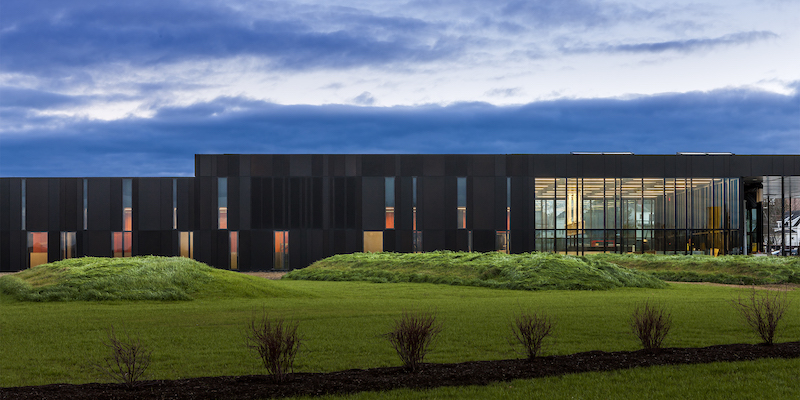
Giving back to the communities of Minnesota and the profession are key initiatives beyond design excellence, and many studio members are involved in local architecture schools. In 2017, the firm provided $120,000 in pro bono services to outlets such as the Kibera Girls Soccer Academy in Kenya and the Leatherback Trust in Costa Rica. By shelving the idea of all-night charrettes and promoting a healthy work/life balance, Snow Kreilich has proven that important and award-winning architecture can be conceived during regular business hours.
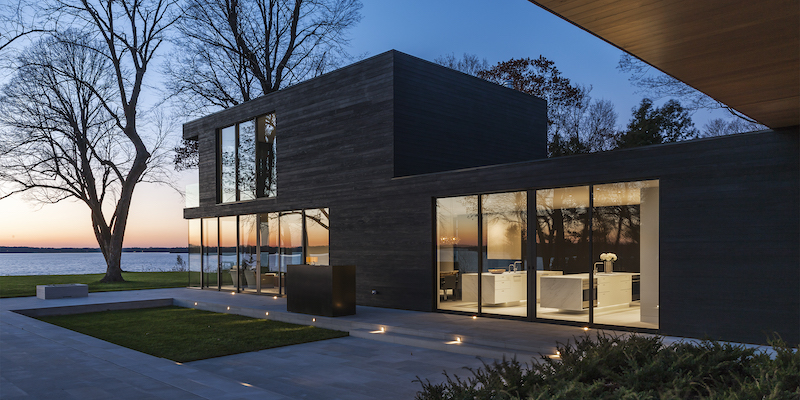
Other notable projects include:
CHS Field
This project in St. Paul, Minn., was named the best New Ballpark of 2015 by Ballpark Digest. The facility is not only a beautiful venue to watch a baseball game or concert, but also has attracted major investments in housing and restaurants in the neighborhood.
B + W HOUSE
The design replicates the neighborhood’s residential pattern while creating an affordable, sustainable home. A concrete wall encloses the perimeter of the private spaces at grade. The wall is a cast-in-place concrete system with a 4-inch high performance insulation core, providing a cost-effective, energy-efficient, and durable enclosure.
KNOCK INC.
The renovation of a neglected 1960’s food distribution center on the edge of downtown Minneapolis into the new workplace for the creative innovators at KNOCK Inc. Daylight penetrates the space with expanded window openings, floor-to-ceiling glazed office walls, and more than 25 solar light tubes enhancing the work environment and reducing energy consumption. Healthy and local building materials such as reclaimed walnut enhance the workday.
Snow Kreilich Architects is the 55th AIA Architecture Firm Award recipient. Previous recipients of the AIA Firm Award include Leddy Maytum Stacy Architects (2017), LMN Architects (2016), Ehrlich Architects (2015), Eskew + Dumez + Ripple (2014), Tod Williams Billie Tsien Architects (2013), VJAA (2012), Lake| Flato (2004), Gensler (2000), Perkins & Will (1999), Bohlin Cywinski Jackson (1994), and Skidmore, Owings & Merrill (1962).
Related Stories
| Sep 24, 2014
5 business lessons from a 43-year Star veteran
Mary Ed Cain was supposed to be born a boy. That was the first time she surprised everyone. The second time came on a daily basis during her 43-year career at Star Building Systems. SPONSORED CONTENT
| Sep 24, 2014
Architecture billings see continued strength, led by institutional sector
On the heels of recording its strongest pace of growth since 2007, there continues to be an increasing level of demand for design services signaled in the latest Architecture Billings Index.
| Sep 24, 2014
Frank Gehry's first building in Latin America will host grand opening on Oct. 2
Gehry's design for the Biomuseo, or Museum of Biodiversity, draws inspiration from the site's natural and cultural surroundings, including local Panamaian tin roofs.
| Sep 23, 2014
Cedars-Sinai looks to streamline trauma care with first-of-its-kind OR360 simulation space
The breakthrough simulation center features moveable walls and a modular ceiling grid that allow doctors and military personnel to easily reconfigure the shape and size of the space.
| Sep 23, 2014
Third phase of New York’s High Line redevelopment opens
The $35 million Phase 3, known as High Line at the Rail Yards, broke ground September 20, 2012, and officially opened to the public on September 21.
| Sep 23, 2014
Cloud-shaped skyscraper complex wins Shenzhen Bay Super City design competition
Forget the cubist, clinical, glass and concrete jungle of today's financial districts. Shenzhen's new plan features a complex of cloud-shaped skyscrapers connected to one another with sloping bridges.
| Sep 23, 2014
Designing with Water: Report analyzes ways coastal cities can cope with flooding
The report contains 12 case studies of cities around the world that have applied advanced flood management techniques.
| Sep 22, 2014
4 keys to effective post-occupancy evaluations
Perkins+Will's Janice Barnes covers the four steps that designers should take to create POEs that provide design direction and measure design effectiveness.
| Sep 22, 2014
NCARB overhauls Intern Development Program, cuts years off licensure process
The newly adopted changes will be implemented in two phases. The first will streamline the program by focusing on the IDP’s core requirements and removing its elective requirements. The second phase will condense the 17 current experience areas into six practice-based categories.
| Sep 22, 2014
Biloxi’s new Maritime and Seafood Industry Museum is like a ship in a bottle
Nine years after the Museum of Maritime and Seafood Industry in Biloxi, Miss., was damaged by Hurricane Katrina’s 30-foot tidal surge, the museum reopened its doors in a brand new, H3-designed building.


